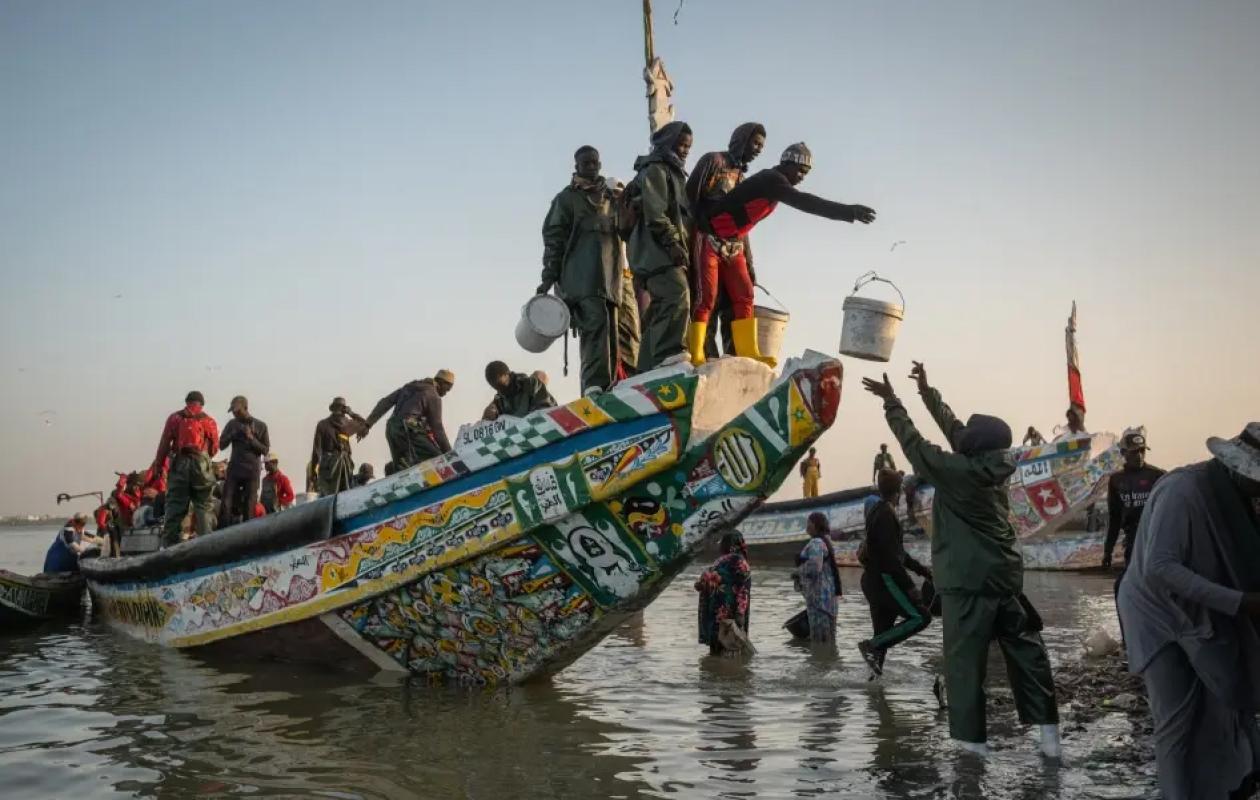
Projet relogement à Saint-Louis : Human Rights Watch alerte sur la précarité des déplacés de Khar Yalla
Nearly ten years after the severe damage caused by the advancing sea and coastal erosion devastated their homes on the Langue de Barbarie, more than a thousand displaced fishermen are still living in precarious conditions in Khar Yalla, in Saint-Louis. Human Rights Watch (HRW) has just published a damning report, highlighting the failures of the Senegalese government in managing their resettlement and calling for inclusive policies that respect the rights of climate-displaced people.
According to HRW, Khar Yalla residents, relocated by the municipality in 2015 and 2016 after the rising waters, were unable to benefit from the World Bank-funded Resettlement Program for Affected Populations (SERP). While some displaced people were transferred to Diougop, others were left behind, without a lasting solution.
"Even though the municipality has welcomed the displaced people from Khar Yalla, managing climate-related displacement is not a municipal responsibility. It is the responsibility of the Senegalese government, through its specialized agencies. However, there has been a flagrant lack of coordination and monitoring," emphasized Fatoumata Kiné Mbodji, communications and advocacy manager for the NGO Lumière Synergie pour le Développement, an HRW partner in this research.
It recommends, among other things, the organization of consultations with the populations concerned and the guarantee of their fundamental rights: housing, health, education, a healthy environment and access to decent work.
Women on the front line
The issue of rehousing does not only concern fishermen, but also their families, particularly women fish processors, who see their activities weakened by this instability.
Fama Sarr, president of the local Union of Women Processors and an active participant in the sector, denounces a blatant inequality in the treatment of displaced people:
"Those affected by the 2017 coastal erosion were given housing. But those from 2016, who have survived for nearly a decade in Khar Yalla, are still forgotten. Yet, 68 available housing units could have been allocated to them. We don't understand why they are not included in the project."
She recalls that the Khar Yalla site was only supposed to be a temporary shelter, but that the situation persists, plunging entire families into precariousness.
A call for urgent action
The Human Rights Watch report urges the Senegalese government to assume its responsibilities and accelerate the implementation of rehousing programs. The families of Khar Yalla, the first victims of climate change, continue to wait for a solution that is slow in coming.
In a context where the risks linked to coastal erosion are intensifying, local actors and human rights organizations insist: ignoring the situation in Khar Yalla is to aggravate the climatic and social injustice that these communities have been experiencing for nearly ten years.
Commentaires (0)
Participer à la Discussion
Règles de la communauté :
💡 Astuce : Utilisez des emojis depuis votre téléphone ou le module emoji ci-dessous. Cliquez sur GIF pour ajouter un GIF animé. Collez un lien X/Twitter ou TikTok pour l'afficher automatiquement.